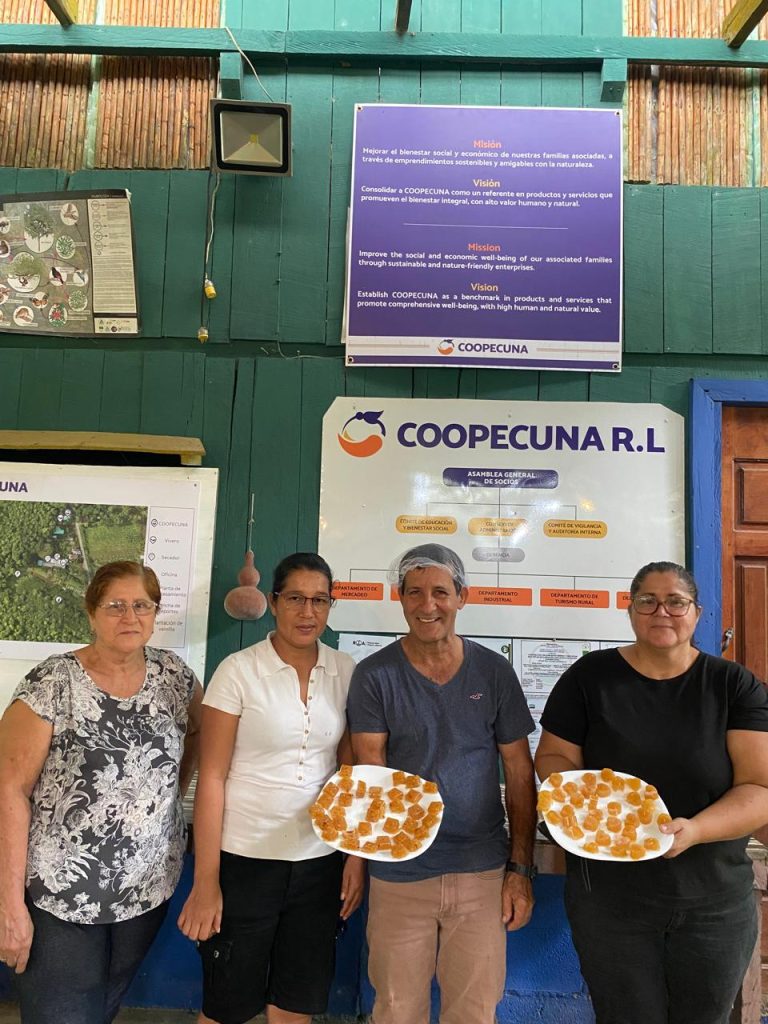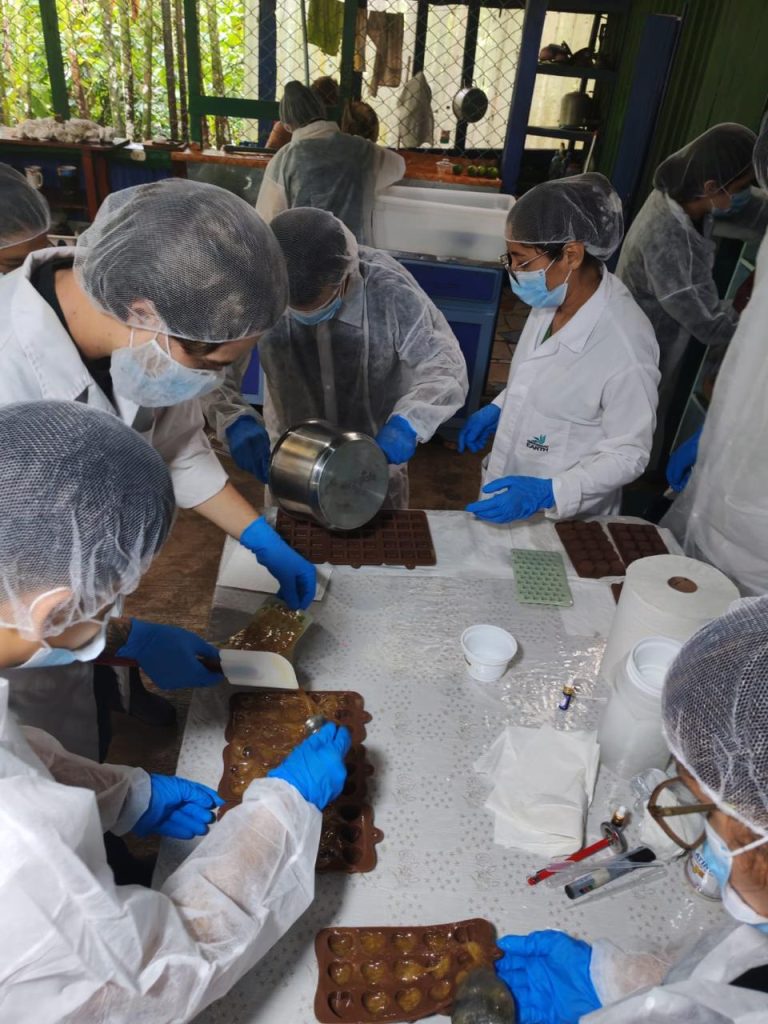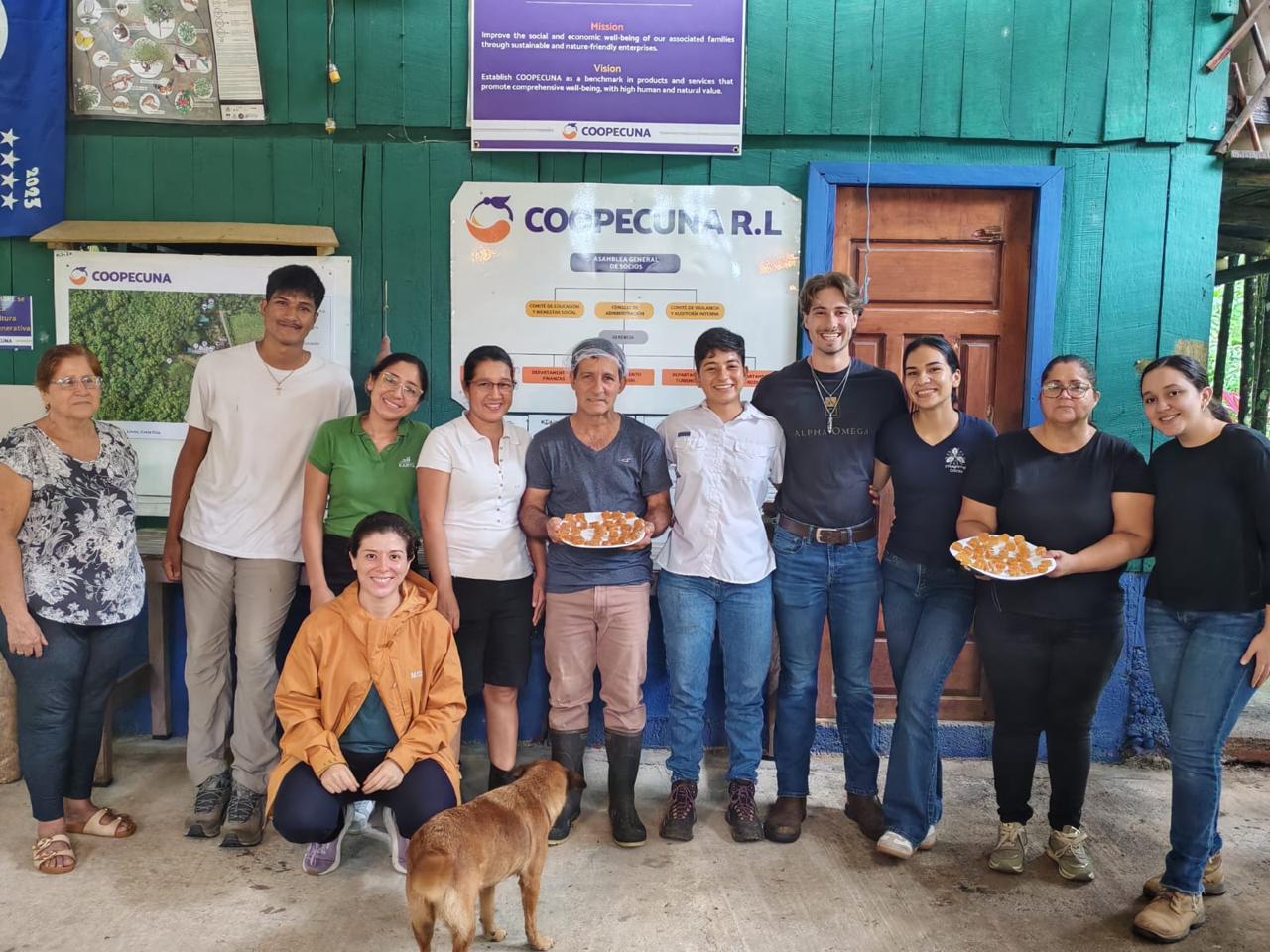The CoopeCuna Cooperative, born as an agrotourism project, has evolved over time. Through innovation and strategic alliances, they have found a way to strengthen essential oil production and diversify product offerings.
Their most recent project was developed with the support of University students through the courses Work Experience and Professional Experience held within the Community Scenario , along with other institutional units and centers such as the Community Development Program (CDP), the Food Processing Laboratory (LPA), and EARTH Futures. This marks an important step toward accessing new international markets and the creating of added value in medicinal plant crops for local consumption.
CoopeCuna is one of the Farmer Producer Organizations (FPOs) participating in EARTH Futures’ Resilient Agrifood Systems (RAS) Project, an initiative funded by the Walmart Foundation that seeks to improve market access and agricultural practices and strengthen organizational structures of participating FPOs. Through this support, cooperative members have been able to improve their production systems and build partnerships with other institutions to expand their reach.
CoopeCuna is also one of the hosts of the Community Development Program, a learning platform that promotes the exchange of knowledge between students and community members. At CoopeCuna, first-, second, and fourth-year students work alongside professors from the Community Scenario, which is part of the Work Experience and Professional Experience courses.

Its goal is to foster the development of students’ skills and attitudes so they can become change agents capable of designing and implementing projects that improve the quality of life in rural areas. At the same time, community members, also called hosts, can both learn and teach about productive practices.
Maria Fernanda Rodriguez Suriano (Class of 2025, Mexico) is a student leader in the Community Scenario and works with the guidance of Professor Sergio Callau, with support from EARTH’s CDP and LPA teams. Her project with CoopeCuna aims to add value to crops such as oregano, lemon verbena, and eucalyptus, which are commonly used as raw materials for essential oils. At CoopeCuna, Maria Fernanda immersed herself in the world of value addition, developed an updated cost structure, led market studies, and participated in the creation of a new product: medicinal gummies.
“The beginning was challenging because I had to learn from scratch and step out of my comfort zone. But it has been very rewarding to see how an idea that once seemed distant, like the gummies, became tangible and filled producers with excitement. Doña Sonia, one of the cooperative’s leaders, told me she always dreamed of this product, and now it’s a reality that can reach the market,” the student shared.
The process included surveys in health food stores and pharmacies in the Caribbean region, along with sensory tests and formulations carried out with Ivannia Sánchez, coordinator of the FPL; Aracelly Cordero, Professor of the Food Processing course; and fourth-year students Paola Tipás (Ecuador), Adam Vorster (South Africa), and Joselin Mora (Panama). After several attempts, the team developed a standardized prototype that is now advancing toward formalization with nutritional labeling and health permits.
In addition to the gummies, the CDP team together with students and professors from the Community Scenario, have worked on developing prototypes such as chocolates infused with essential oils like orange and lemon verbena and have provided training to producers, strengthening CoopeCuna’s vision of offering health and wellness through its products. This effort complements the mentoring and training provided by EARTH Futures, enabling the cooperative to reach its maximum potential and aim for global markets such as Canada and Europe.

Although EARTH Futures’ formal intervention is coming to an end, the projects lay an important foundation for CoopeCuna to continue growing with the support of EARTH’s Community Development Program and other partner institutions. The immediate challenge will be to consolidate its positioning in international markets with essential oils, while also seizing diversification opportunities to offer products like medicinal gummies and artisanal chocolate.
